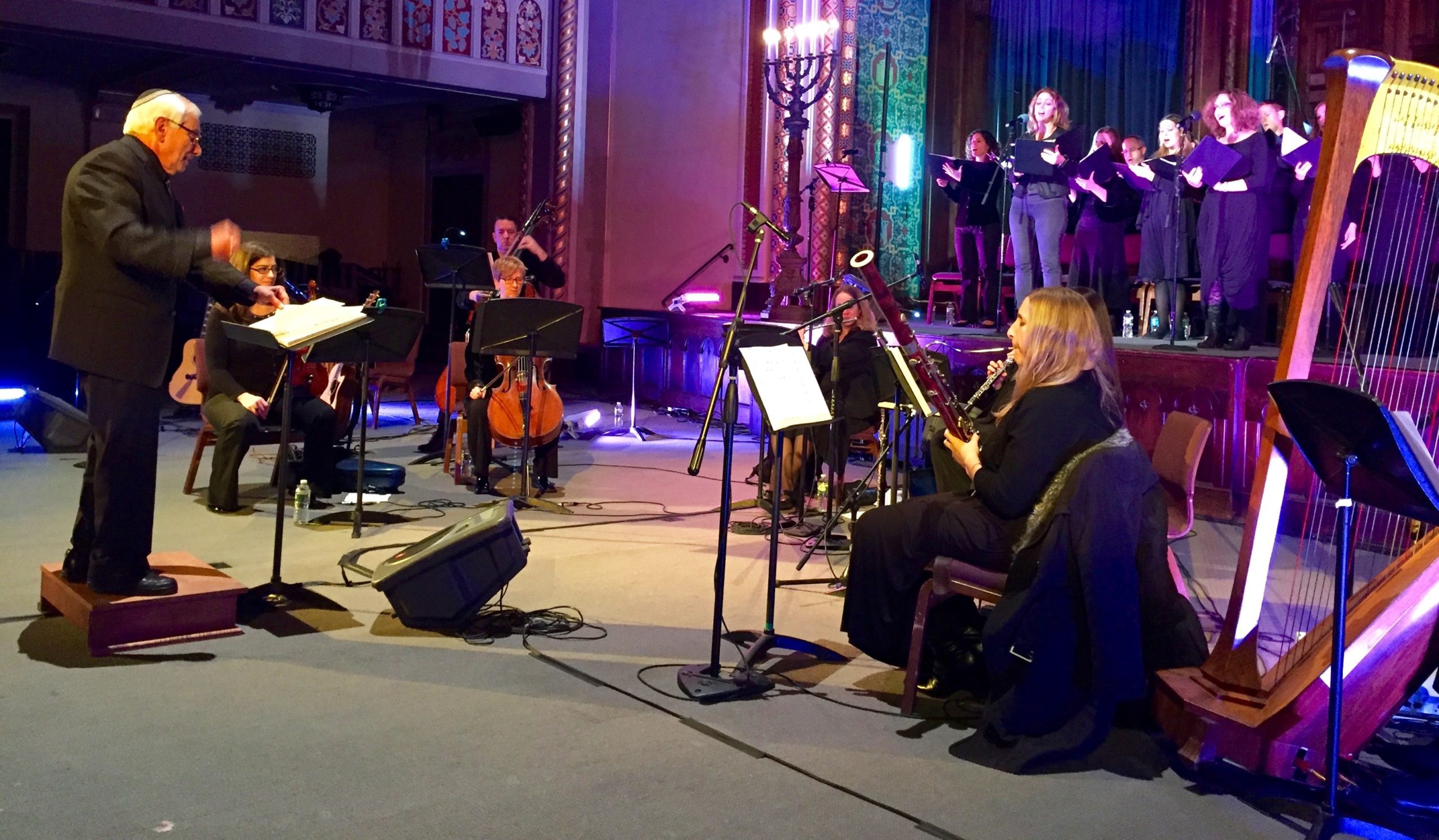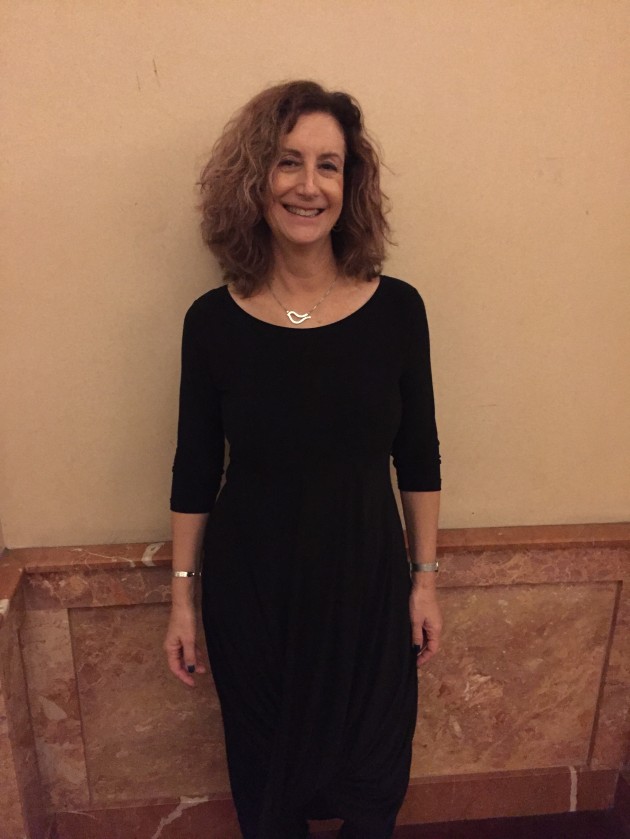
Sacred Rights in a Time of Terror
Then comes the stark reality, through song and speech. A printed program with lyrics to all the songs is the takeaway. I would also have welcomed a program including Gordon’s carefully researched spoken words on the lack of democracy in a seemingly modern state where marriage and divorce for all Jews, religious or not, come under Jewish religious law. Civil marriage and divorce do not exist in Israel.
As the opening lyrics go:
The right to pray, the right to marry,
the right to be set free.
The right to ride a public bus
in simple dignity.
In the exercise of these sacred rights,
could the State we love be wrong?
We raise our voices in concern,
This is our sacred song.
Talented and determined though Gordon is, her singsong rhyme scheme detracts from the power of the call for the Jewish State to move beyond the strictures of Orthodox law.
Fortunately, her lyrics have been set to music by some talented composers, many of whom were in the Ansche Chesed audience. Sunday’s program got additional energy from guest performer Naomi Less, singer/songwriter currently best known as associate director of New York’s “everybody friendly” Storahtelling Lab/Shul.

Francine M. Gordon, creator of Sacred Rights, Sacred Song. Photo by Amy Stone.
Certainly it’s a cause for joy to have a body of music celebrating our struggle for the most basic equal rights in prayer and in marriage/divorce. In “Images of Av,” Gordon writes of the day Anat Hoffman, leader of Women of the Wall, was taken away:
As the police of the Jewish State, bowed to the fear and hate of those
who deny a woman’s right to pray
at the Western Wall in her own way.
There’s the song of the couple married by a Masorti rabbi, whose marriage is not recognized because Masorti Judaism (the name for Conservative Judaism in Israel) isn’t recognized by the all powerful Orthodox Rabbinate.
Then there are the daily humiliations of second class citizenship. In “The Odd Bus,” the chorus sings of the outrage of the ultra-Orthodox forcing all women to the back of the bus along certain routes, despite legal rulings.
It makes no difference what you think,
or what principles you hold.
It’s been decreed that on that bus,
as a woman you are told
where to sit, go to the back
‘cause that’s the will of G-d.
In conversation after the concert, Gordon, 57, explained what motivates her: “I was too young for the civil disobedience of the secular ‘60s but I want to sing my way through the civil disobedience of the sacred ‘70s (as in the Jewish calendar 5770s).”
If you’re looking for songs singing the equality of both Jews and Arabs, you’ll find only one, with voices in stately harmony expressing:
Each child has a sacred right to survive,
whether from Gilo, Gaza or Gedera.
In the Divine image each child is made,
whether from Haifa, Beit Hanoun or Hadera.
Gordon’s mission is to sing out the need for a modern Jewish democracy, specifically as it relates to women. She wants to motivate North American Jews to provide support for a Jewish democratic society based on gender equality and freedom of worship.
So what about this call for democracy for the Jewish State in the time of carnage in Paris and places where the atrocities don’t even make it into the media?
The call for democracy is not a self-serving agenda in times of terror. The women of Israel have been told time and again to wait to redress their lack of rights in the spheres of religion and domestic law until Israel is more secure.
Sacred Rights, Sacred Song gives voice to the need for women to be treated as fully equal citizens of the Jewish State. Now. This is not a luxury for peaceful times.
For more information, visit www.sacredrightssacredsong.org/ or call phone (212) 496-5744.



